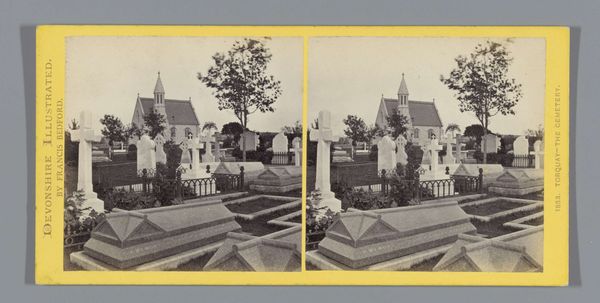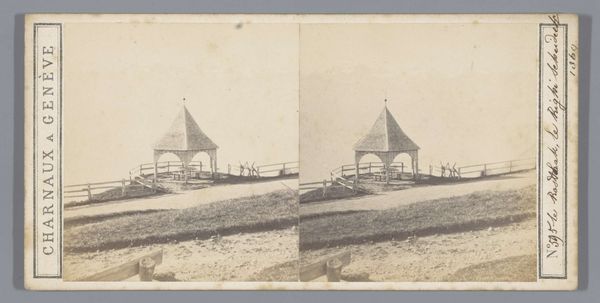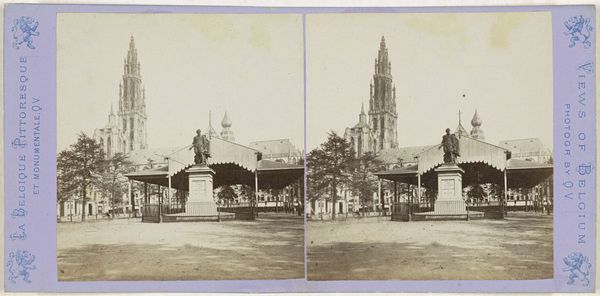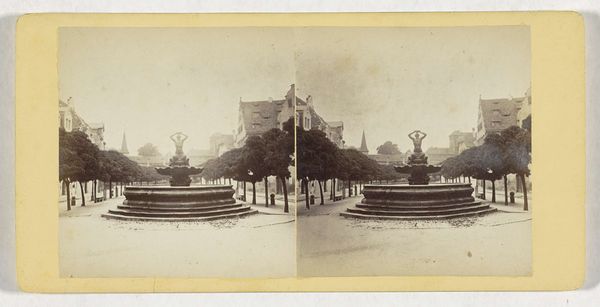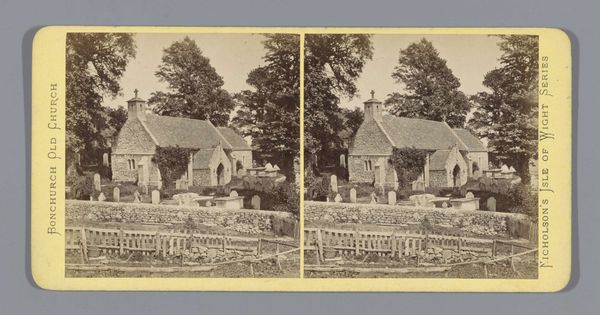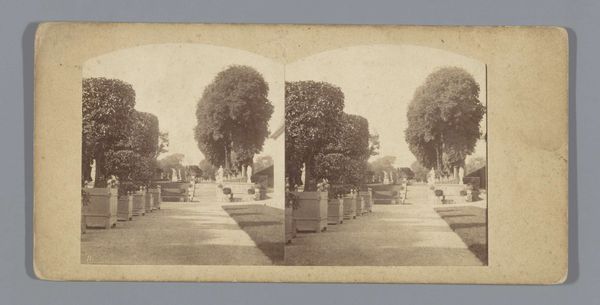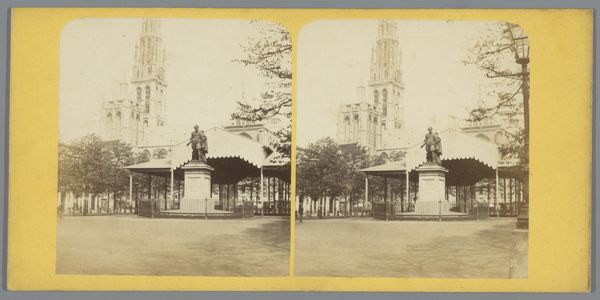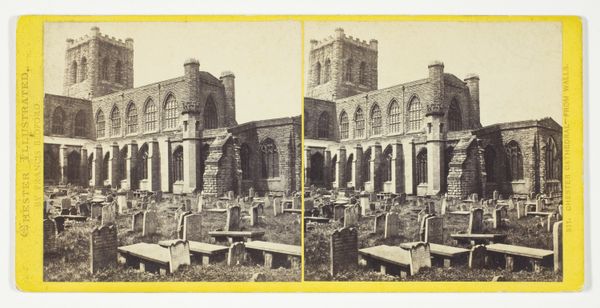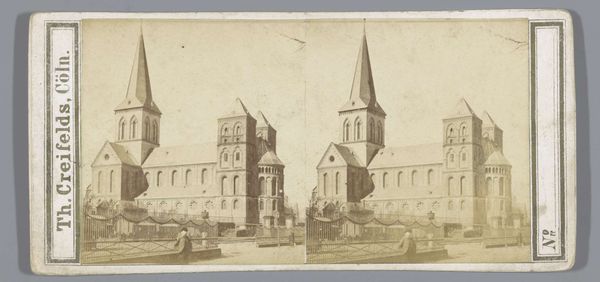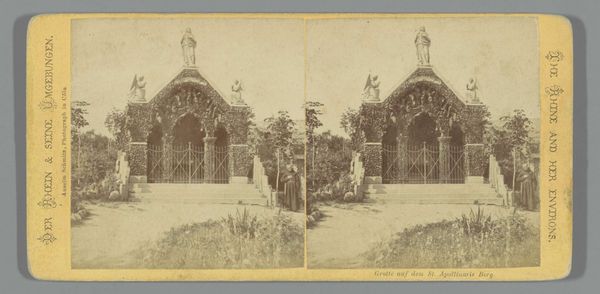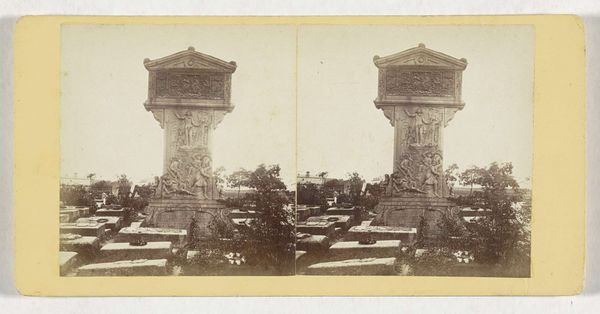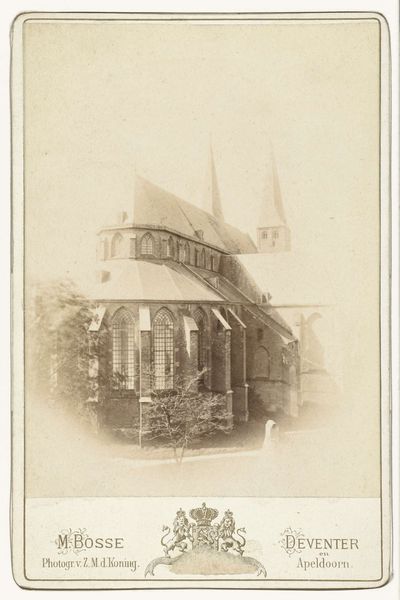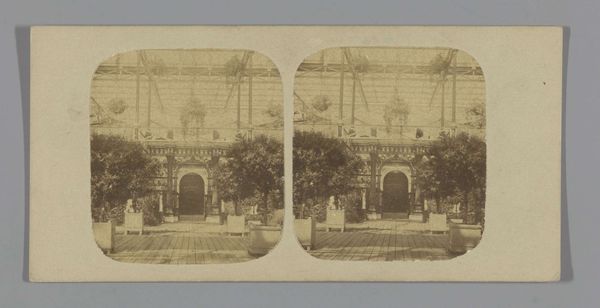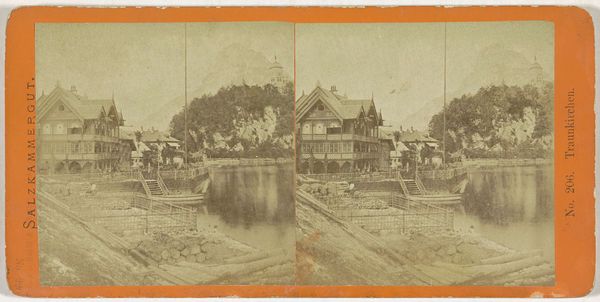
print, photography, gelatin-silver-print
# print
#
landscape
#
photography
#
coloured pencil
#
gelatin-silver-print
#
cityscape
Dimensions: height 87 mm, width 177 mm
Copyright: Rijks Museum: Open Domain
This stereoscopic photograph shows Albrecht Dürer's grave at the Johannis cemetery, and was made by Johann Friedrich Stiehm sometime in the late nineteenth century. This would have been quite a novel process in its time, requiring the careful combination of chemistry, optics and printing. The resulting albumen print, made from paper coated in egg white, has a distinctive sepia tone and a smooth, glossy surface. This photographic process allowed for the relatively easy mass production of images. This new technology democratized image making, which had previously been in the domain of the highly skilled artisan. Photography also played a pivotal role in tourism, and the commodification of culture. This photograph, like many others, offered a way for people to possess a tangible memento of their travels, feeding into a growing industry that celebrated both art and the places it inhabited. Paying attention to the materials and social context of production, helps us fully understand this artwork, and challenges traditional distinctions between fine art and craft.
Comments
No comments
Be the first to comment and join the conversation on the ultimate creative platform.
